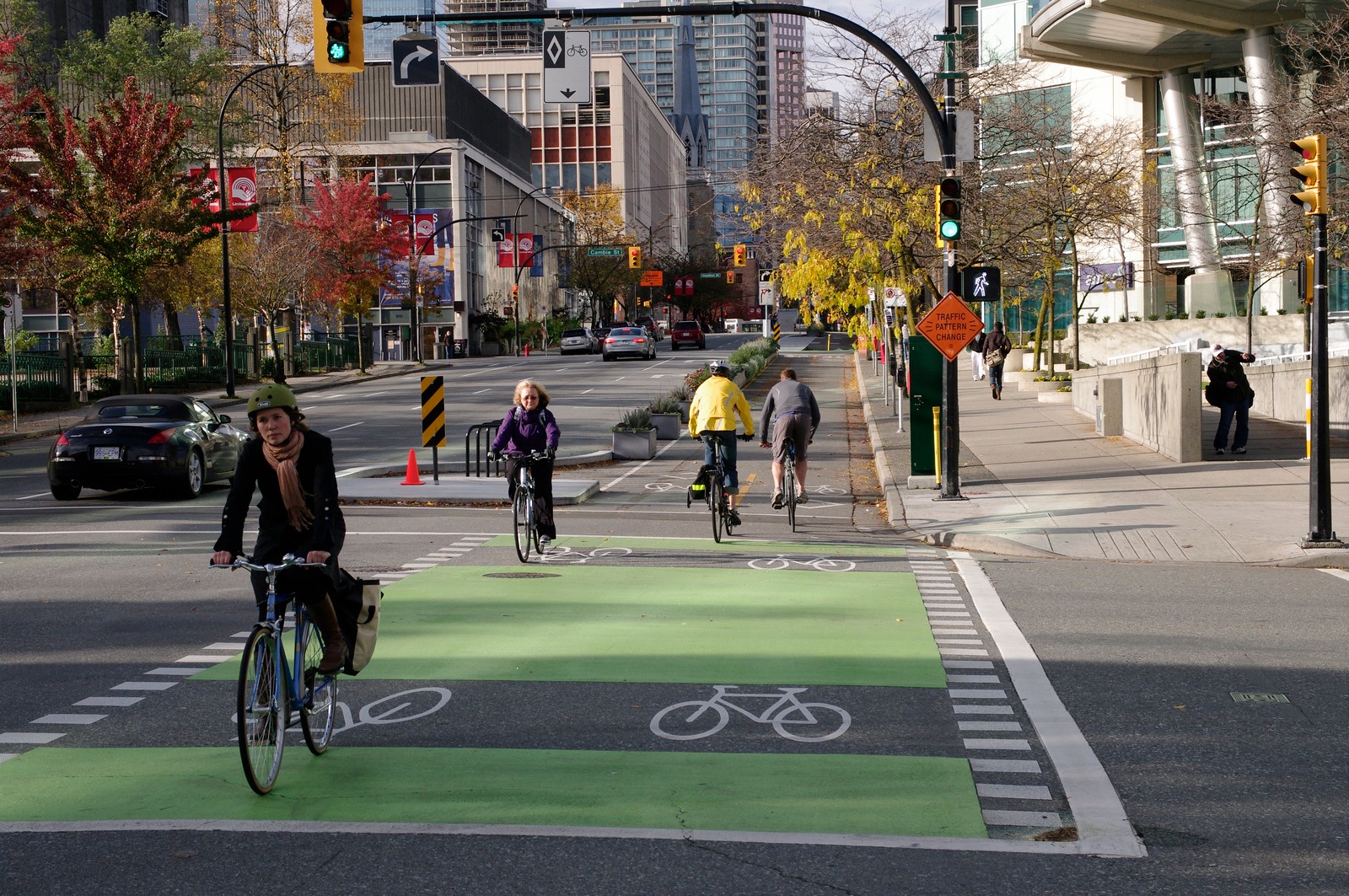- Green infrastructure can lead to gentrification, which means cities have to figure out how to add climate-crucial amenities without displacing residents. (Bloomberg)
- Both fleet electrification and more compact, walkable cities with better transit are needed to avoid a climate apocalypse, according to a new UN report. (Greater Greater Washington)
- Even when accounting for manufacturing, electric cars produce half as much carbon over the life of the vehicle as gas-powered ones — but that's still nowhere near the carbon reductions achieved by walking, biking and transit. (Yale Climate Connection)
- After a pandemic-related slowdown in bike-share usage, Washington, D.C. is offering contracts to five companies to bring 20,000 new bikes into the system. (WaPost)
- Kansas City is keeping its pledge to build 15 miles of new bike lanes a year. (Star)
- While perhaps an example of too much democracy at work, San Francisco's successful referendum to close JFK Drive to cars could embolden other city leaders to take similar steps on their own. (Slate)
- The Charlotte Area Transit System wants to build a new bus station underground rather than at street-level, a less expensive option, because officials said it would provide better rail connections and allow for a mixed-use development aboveground. (WFAE)
- The Metro Atlanta Rapid Transit Authority is getting pushback from intown residents on a streetcar extension that would be the first step to long-awaited transit on the Beltline. (AJC)
- Portland is changing its unique system of government where commissioners elected citywide serve as legislators but also run departments like transportation. (Oregon Public Radio)
- The UK is considering raising its windfall tax on oil and gas companies. (Reuters)
- They're on freeway ramps, in between merge lanes, and blocked by poles, trees and outdoor cafes — here are some of the world's worst bike lanes. (Momentum)
Stay in touch
Sign up for our free newsletter
More from Streetsblog USA
Monday’s Headlines Took the Keys Away
A demographic disaster is coming as a generation of aging suburbanites become either dangerous drivers or trapped in their homes.
Why Anti-Trans Laws Are Terrible For Transportation, Too
A disturbing new Kansas law revokes trans people's driver's licenses. Here's how it will make our communities more dangerous.
Sunbelt Cities Rank Last in National Street Safety Index
Cars and drivers continue to dominate the newest and sunniest cities in the United States.
Mass. ‘Micromobility’ Commission Recommends Improved Classification, Regulation of Motorbikes and Scooters
Among other recommendations, the commission supports expanding bikeshare systems and other micromobility options as a safer, less expensive, and more efficient alternative to driving.
Americans Demand Congress Fund Active Transportation In Next Infrastructure Bill — And Not Just The Bike/Walk Advocates
A "back to basics" surface transportation bill — as Republicans are seeking — would be devastating for road safety and small businesses.
Friday’s Headlines Take a Lot to Laugh, Take a Train to Cry
I ride on a mail train, baby. Can't buy a thrill.






